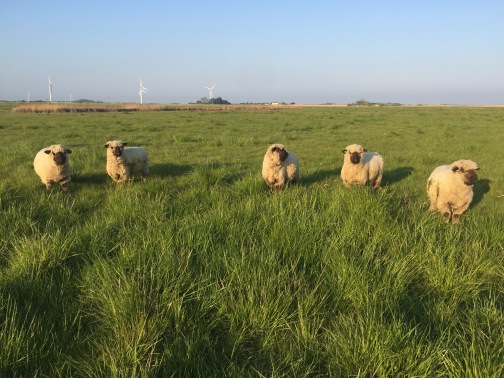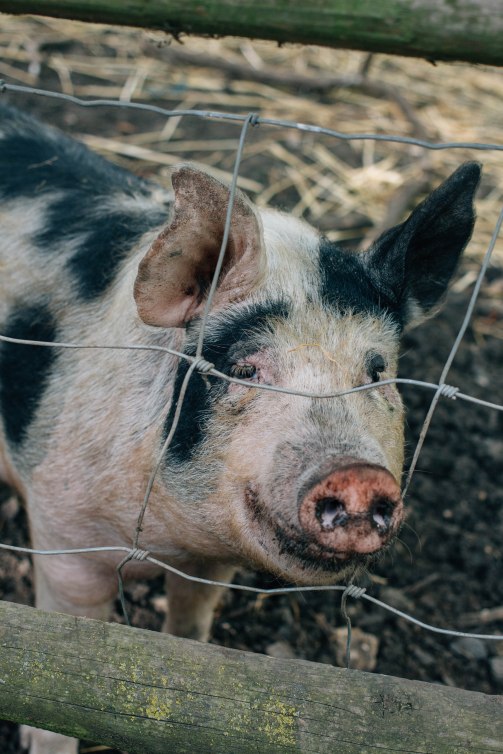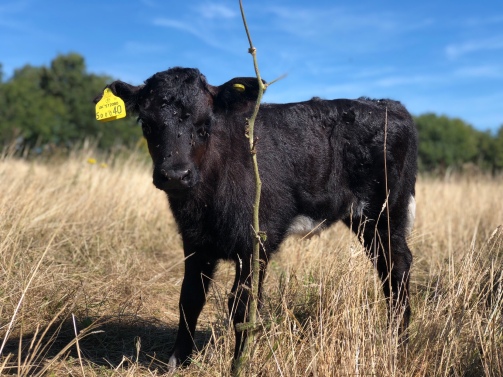Now that I find myself once again starting up my own farm, I am having to remember all the advice given to me over the past few years and all the lessons that I learnt along the way (which is a tricky task believe me!).
Although this is by no means a comprehensive list of the dos and don’ts of farming, it is certainly a starting point for those starting out and in particular those starting a farming business for the first time, or a venture in a new area of farming.
Choosing what to farm
First of all is the hugely daunting and important task of choosing what to farm.
Whether it be potatoes or pigs, choose something you like to eat because the chances are you going to eat a lot of it! I can never understand those farmers for instance, that produce lamb but do not eat it – and it happens a lot more than you would think!
I know from the beef cattle farm that I currently work on, any leftovers from a farmer’s market or steaks that you cut ‘a bit iffy’ are all going to end up in your fridge, so enjoy what you produce and reap the benefits of farming it.
On a similar note, you are going to want to choose something you enjoy farming because you are going to spend a lot of time out there doing exactly that.
If you hate cleaning out cages/coops/hutches, perhaps choose an animal that doesn’t require permanent shelter, such as sheep.
If you’re not a morning person, don’t go into dairy. Think what works for you personally and what you do and don’t enjoy doing.
Think about your time commitment to the farm, when a lot of people are starting out in farming they usually have another career running alongside their start-up business, which in turn means they cannot spend all day, every day tending to their animals/crops.
Generally, baby animals require a lot of attention and round the clock care. Maybe it would be easier for you to buy-in stock and simply fatten them up, at least in the early stages. Some people may question ‘is that really farming though?’ and I simply say, ‘yes it bloody is’.
Working with small acreage
It is a fact that most first-time farmers aren’t going to start off with, or even end up with, thousands of acres to farm.
However, I am here to tell you that with the right mindset, it is not necessary to try and compete with the ‘big boys’ of agriculture and obtain that quantity of acreage.
So you only have 10 acres, or 3 acres, or 1 acre, who cares as long as you choose to farm something that works with the amount of land you have and you use every inch of your farm to your advantage – then a farming business will be viable from your land.
It does mean that you have to work extra hard and if you do only have a one-acre plot do not think you can keep a herd of beef cattle happy, or earn a living from it. Perhaps broiler chickens, meat rabbits or a veg-box scheme would be better for you.
Allow your land time to rest
The other problem with small acreage is the desire to fill it to the brim and not plan for the long term.
There is no money to be made on land that isn’t allowed to rest, or with grazing stock that haven’t got enough pasture to eat due to you overstocking the fields. Overstocking can also result in worm burden, invasion of weeds and stressed animals; none of these will benefit your farm.
My advice would be to look at stocking rates recommended by groups such as the Pasture-Fed Livestock Association. They will offer realistic ratios of animals to acres dependent on the species/ age/ sex.
If you cannot make a business from the numbers of animals advised to be kept on your land, then you need to choose a different species rather than trying to cram too many on your land.
If you do have a small acreage, another recommendation to protect your land is to really reduce stock numbers or even ‘shut down for the winter’.
In wet weather, ground is susceptible to poaching – where your grass or soils are damaged by livestock feet, which can affect welfare and the productivity of your land.
If over winter you were to reduce stock numbers to a minimum, or move your stock either into housing, to the market or the freezer, you are less at risk of damaging your land, and therefore have better land to feed your flock/ herd during the rest of the year.
Compete on quality and added-value
Another issue that farmers with small acreage have is the desire to compete with large-scale commodity-based farmers. You need to know this from the outset: You CANNOT compete with this type of farmer. You also shouldn’t want to compete with them.
This is of course with regards to quantity. What you can do is offer incomparable quality. So how do you create such quality?
First you need a story and a cause, otherwise known as what you do and why you do it. Consumers love to buy into a brand when they know what it stands for and how it works – look at the dedicated customer base that a well-known brand such as Waitrose has due to its association with high-quality products.
You can also create quality, and therefore income, by dedicating time to adding value to your product and farming what people are prepared to pay a premium for.
A caged hen in a supermarket may sell for £3, a free-range, pasture raised, rare breed chicken may sell for £10; it is all how you market the product and what value you can add from the way it is raised and the uniqueness of your farm set-up.
What others may see as a disadvantage (a small flock) can actually increase your profit margin per bird because animal welfare may be increased.
Another way to add value is to reduce the workload of your customer when they come to eat or prepare your product. Chicken breasts boned and skinned or chicken thighs that are boned, rolled and stuffed, all create an easy meal for your customer and a higher profit for you.

Increase your knowledge
If you are a first-time farmer, it is probable that you need to increase your knowledge of farming. Even if you have spent the last three years at agricultural college, or five years reading books about farming, nothing beats actual farming.
You should start off small though. Test things out before you start a farming enterprise that is either too big for you to cope with or in an area that is not profitable or suitable for you. The last thing you want to do is invest all your time, money and effort into something that you haven’t sampled small-scale first.
Think of it as building a prototype before the finished product is manufactured. Then if it is not successful and you decide to scrap your idea, you have not lost too much.
And don’t worry if it doesn’t work out, there is no shame in it not going to plan the first time. Remember the difference between a winner and a loser is getting up one more time. If you get knocked down by a failed farming start-up, make sure you get up because the next try could be the last try and the first success.
Learn from other farmers
Another great way to increase your knowledge is to surround yourself with more knowledgeable farmers.
Go to livestock markets, make friends with neighbouring farmers, attend farmer’s markets and make yourself present in your local community.
A fabulous resource is also social media, I bang on about how it helped me in farming but it truly did and I wouldn’t be where I am today without it. My advice is to sign up to Twitter, follow farming accounts, subscribe to farming blogs and make friends with those across all areas of farming.
Many fabulous experienced farmers are prepared to help newbies, whether that be with sourcing stock, recommending suppliers, offering training or just giving general farming advice. You can return the favour to a first-time farmer one day!

That awkward money conversation
First off, I am not even going to mention farming subsidies. Do not rely on government handouts for your farm to be a success. The chances are you will not qualify for them anyway and with the upcoming changes (in the UK) I would hate for you to become reliant on an income from a scheme that could disappear in a few years time.
Secondly, I am going to advise that you do not get yourself into debt to start your farm. Loans and credit cards will put a huge cloud over your farming business as you work to pay them off and you will have a monthly expense before you even start to make your farm work.
Build a nest egg
Joel Salatin (an American farmer and writer) made a great recommendation; to work until you have a one-year nest egg, then start your farm, because after that first year the worse that can happen is you have to go back to work, rebuild the pot and try again.
To make that nest egg last longer, or to work for less time to build up that nest egg, you are going to have live frugally. If you truly want to farm though, you will be more than ready to compromise.
Think about cash flow
You are going to need to consider cashflow – it will be vital to maintain your business.
If you need income all year round, turkeys are not going to be your go-to choice. Of course, if you fattened pigs January to June and had turkeys June to December, then you have created two revenue streams in bi-annual lump sums.
A business involving free-range eggs however, can start producing cash from the get-go, with daily production, if you buy a flock of point-of-lay hens at the beginning. But come the winter as egg production decreases, how are you going to maintain that income?
Farming generally does produce seasonal income so you are either going to have be clever and choose an avenue that supplies regular cashflow throughout the year, or plan ahead and know when your incomings are going to peak and fall.
I am hoping to write more blogs about starting out in farming and the ins and outs of running your own farming business, alongside developing my own new business in 2019.
I hope you will join me on the journey while I share what I learn and the mistakes that I make along the way (there will be plenty I am sure!). If you have any topics that you would really like to me to talk about be sure to let me know!
Speak soon
Katie x


